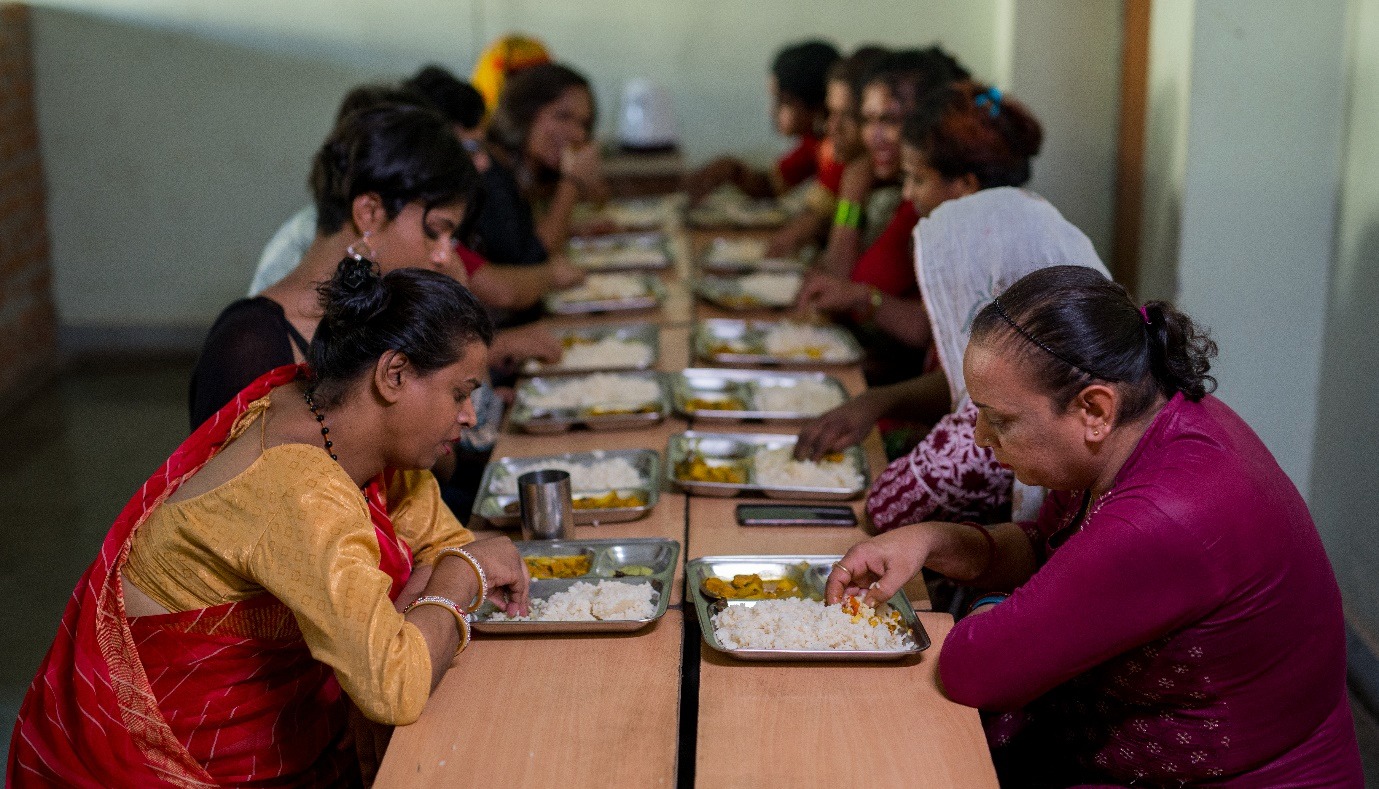A Name of One’s Own: Empowering Trans People through Identity
June 28, 2024

Baha Homsla, a Transwoman from Jharkhand state of India, is keen to become a dancer.
“Fear. That’s what I felt when I realized I was different. I didn’t see anyone around who was like me. When my mannerisms betrayed my birth identity, the ridicule started. I was locked up in a room and asked to live out my life in that space,” says Baha Homsla, a Transgender woman.
The fear of ridicule, stigma and discrimination associated with being non-binary continues to plague millions of LGBTQI+ people around the globe. Many are forced to lead double lives, which has devastating effects on their mental health. According to UNDP’s Human Development Report, nearly 75 percent of young LGBTQI+ people globally have experienced discrimination based on their sexual orientation or gender identity, and roughly 62 percent have had major depressive disorders.
The situation worsens when minority status overlaps, such as an LGBTQI+ person identifying as an ethnic minority. For Baha, who hails from a tribal community in Bihar, the effects of discrimination are compounded, eventually forcing her to run away from home.
Millions like Baha around the world face hateful reactions at home and outside, leading to school dropouts, job losses, homelessness, and avoidance of healthcare.

Transpersons at the Garima Grah run by CBO DOSTANASAFAR in Bihar. (Garima Grah in Hindi means Pride Home). Such shelter homes are being set-up by community-based organizations with support from the Ministry of Social Justice and Empowerment.
Those who find the courage to embrace their true identity often start by dropping their deadname, the birth name they no longer use. This comes with new challenges, particularly in accessing government welfare schemes that typically require a valid identity card. Many transgender people have identity cards with their deadnames, making them ineligible for these schemes. Without an ID card, they struggle to find jobs, rent houses, or access healthcare services.

Community members share a meal at the Garima Grah run by DOSTANASAFAR
The transgender community is at high risk for HIV, being around 13 times more likely to be HIV-positive than other adults of reproductive age. A critical component of managing AIDS is antiretroviral therapy (ART), offered free of cost by the Government of India, but availing it requires a valid identity card.

HIV prevalence among transgender persons is higher than in general population
This necessitates targeted programmes to address the vulnerabilities of transgender people. The UNDP-led SCALE Initiative strengthens efforts to address discriminatory laws and HIV-related criminalization, unlocking access to services across the world.
Under SCALE, UNDP India works with community-based organizations like DOSTANASAFAR to help the transgender community obtain valid identity card. The project includes enrolling trans persons in the National Portal for Transgender Persons, operated by the Ministry of Social Justice and Empowerment. The portal facilitates the issuance of Transgender Identity Cards through district authorities. Upon successful enrolment, a trans person receives a Transgender Identity Card, which can be used to update documents such as bank accounts and PAN cards with the person’s new name.
Additionally, the Ministry offers support through the SMILE scheme. The Support for Marginalized Individuals and Livelihood Enterprise (SMILE) focuses extensively on rehabilitation, medical facilities, counselling, education, and skill development for the transgender community.
“The Transgender Identity Card will help transpeople access healthcare, get ration cards to procure subsidised grain under the public distribution system, open bank accounts, get driving license – a long chain of documents that open opportunities for them. But most importantly, it helps them get what they most want – an identity,” said Reshma Prasad, founder of DOSTANASAFAR.

Reshma Prasad, runs the community-based organization DOSTANASAFAR
Despite the portal's availability, registration remains low, with only 20,000 TG Certificates and ID Cards issued so far, representing a mere 5 percent of the approximately 400,000-strong transgender community in India (Census of India, 2011). There is still a substantial gap in awareness and access.

UNDP works closely with the government and grassroots organizations to ensure more trans people register on the portal and receive their ID cards. We are working to improve the visibility of the SMILE scheme and address any misinformation. “Some members of the community are hesitant to register and receive the trans id card due to fear of further stigma and ostracization in society,” says a community member on the condition of anonymity.
For Baha and many like her, the trans ID card with her new name represents a new lease on life – a life of respect and equality. At UNDP, the leave no one behind principle with its promise to end discrimination and exclusion, is embedded in our efforts to support India in protecting the rights of trans people and promoting their social inclusion.

 Locations
Locations